2014 National Trails Fund Projects
Congratulations to the 2014 Recipients of National Trails Fund grants. And special thanks to charter sponsor L.L.Bean, without whose support, the National Trails Fund grant program would not be possible. The following members of the Alliance of Hiking Organizations will receive funding for their projects:
Arizona Trail Association (AZ)
Arroyos & Foothills Conservancy (CA)
Cayuga Trails Club, Inc. (NY)
Department of Conservation and Recreation, Virginia State Parks (VA)
Friends and Neighbors of the Deschutes Canyon Area (OR)
Friends of Sleeping Bear Dunes (MI)
Friends of Woodland Park (TX)
Tar River Land Conservancy (NC)
Washington Road Community Trail (MD)
Westmoreland Davis Memorial Foundation (VA)
Arizona Trail Association
Phoenix, Arizona
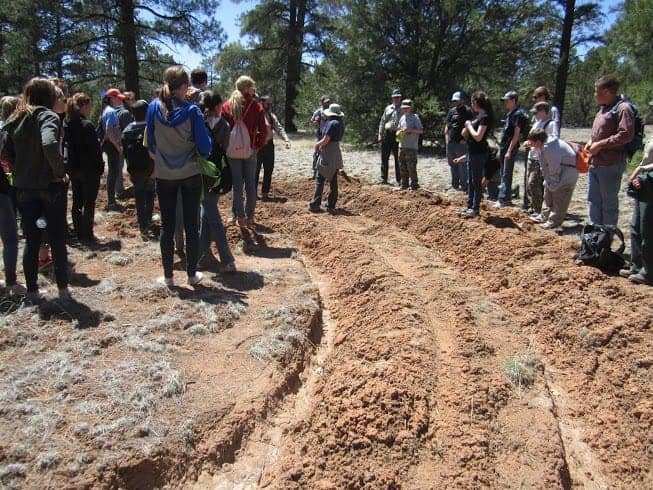 Arizona Trail Association will use their National Trails Fund grant to fabricate and install steel gates at five priority locations along the Arizona Trail to restrict illegal OHV activity, while allowing ease of access for hikers, mountain bikers, equestrians, and other non-motorized trail users. These gates have proven very successful at three locations, meet the specifications of federal land management partners, and require zero maintenance once installed. These gates are locally-made, are virtually indestructible, and do not detract from national scenic trail values. They preserve the non-motorized trail experience that defines the Arizona Trail experience.
Arizona Trail Association will use their National Trails Fund grant to fabricate and install steel gates at five priority locations along the Arizona Trail to restrict illegal OHV activity, while allowing ease of access for hikers, mountain bikers, equestrians, and other non-motorized trail users. These gates have proven very successful at three locations, meet the specifications of federal land management partners, and require zero maintenance once installed. These gates are locally-made, are virtually indestructible, and do not detract from national scenic trail values. They preserve the non-motorized trail experience that defines the Arizona Trail experience.
The Vision of the Arizona Trail is “a non-motorized path from Mexico to Utah connecting deserts, mountains, forests, canyons, communities and people” and recent OHV abuse on the trail necessitates the installation of steel gates to keep motorized users off the Arizona National Scenic Trail.
Arroyos & Foothills Conservancy
Altadena, California
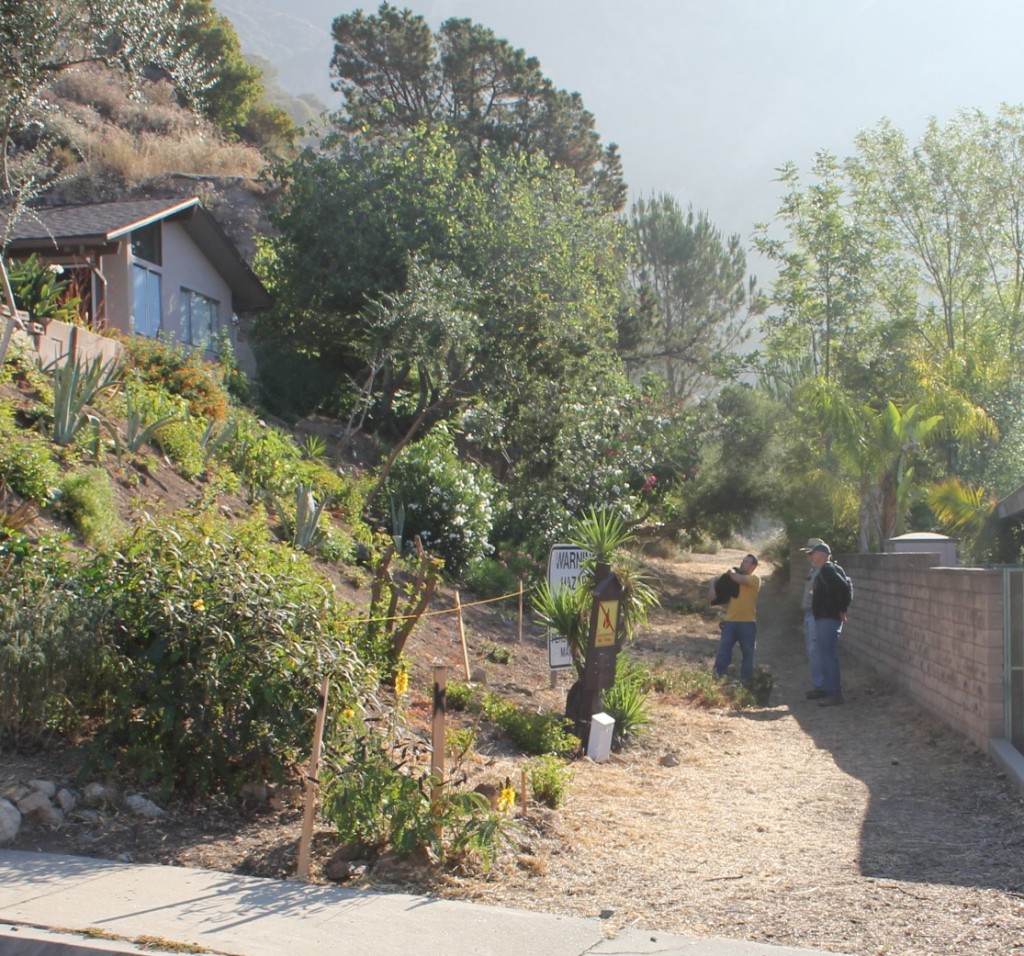 Arroyos & Foothills Conservancy’s 3 goals for this project are to (1) Improve access to Rubio Canyon and the Angeles National Forest; (2) Provide direction and interpretation of cultural and natural history of the canyon; (3) Establish and provide stewardship of a California native Chaparral and Riparian habitat.
Arroyos & Foothills Conservancy’s 3 goals for this project are to (1) Improve access to Rubio Canyon and the Angeles National Forest; (2) Provide direction and interpretation of cultural and natural history of the canyon; (3) Establish and provide stewardship of a California native Chaparral and Riparian habitat.
The National Trails Fund grant will provide funds to develop a trail entry to the historic Rubio Rail Trail in cooperation with the U.S. Forest Service and two adjoining homeowners. The project will install hardscape, irrigation and landscaping. The trailhead will improve access to existing trails, connecting Rubio Canyon to the historic Mount Lowe trail. Using volunteer labor, local materials and native plants, AFC will create a trail entrance where an easement currently exists. Signage will be added to provide direction, rules of use and interpretive information.
Cayuga Trails Club
Ithaca, New York
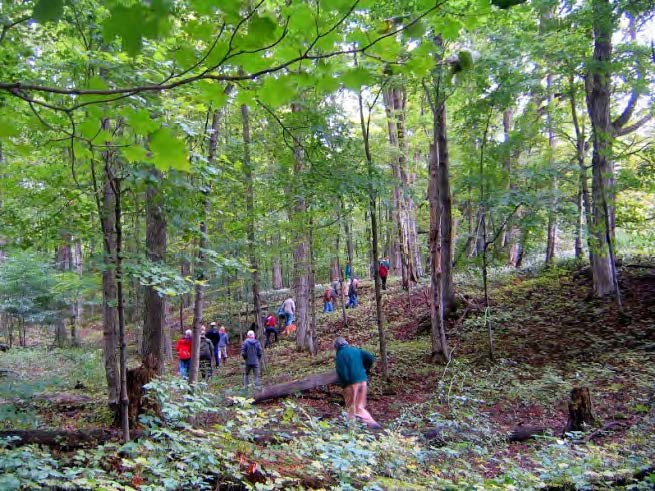 Cayuga Trails Club will use a National Trails Fund grant to manage and maintain the Bock-Harvey Forest Preserve, 48 acres of protected land in Enfield, New York. The preserve was donated to Finger Lakes Trail Coalition through a conservation easement, which provides permanent protection into the future. A 3/4 mile tract of the Finger Lakes Trail / North Country National Scenic Trail runs through the preserve. The Cayuga Trails Club has agreed to manage and maintain this property and plans to build a small parking lot, trailhead, kiosk and interpretive signage, spur trail connecting to the Finger Lakes Trail, and a bivouac or lean-to site for long distance hikers.
Cayuga Trails Club will use a National Trails Fund grant to manage and maintain the Bock-Harvey Forest Preserve, 48 acres of protected land in Enfield, New York. The preserve was donated to Finger Lakes Trail Coalition through a conservation easement, which provides permanent protection into the future. A 3/4 mile tract of the Finger Lakes Trail / North Country National Scenic Trail runs through the preserve. The Cayuga Trails Club has agreed to manage and maintain this property and plans to build a small parking lot, trailhead, kiosk and interpretive signage, spur trail connecting to the Finger Lakes Trail, and a bivouac or lean-to site for long distance hikers.
Cayuga Trails Club will enhance the hiking experience by managing the transition of the land from a private family legacy of over 200 years to a natural preserve open to the public.
Department of Conservation and Recreation, Virginia State Parks
Richmond, Virginia
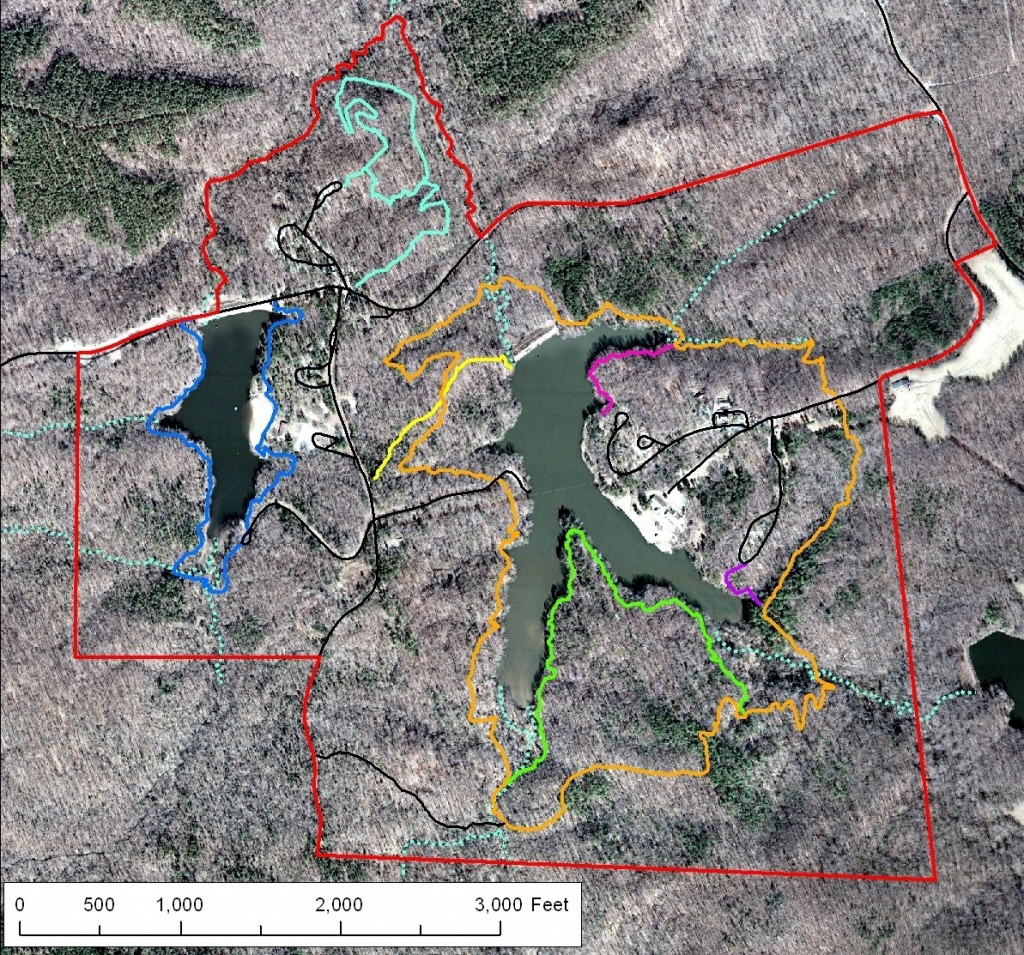 Virginia State Parks’ Department of Conservation and Recreation will use a National Trails Fund grant to restore 6.5 miles of eroded trail in the Twin Lakes area. Three trails – Otter’s Path, Goodwin Lake, and Dogwood Hollow – each cross small streams and sodden areas, causing the majority of the erosion. This project will address these eroded areas that hold water by using a technique called hardening. Assistance from Virginia State Parks Youth Conservation Corps will complete the sustainable tread surface in sodden areas and will introduce 13 youth to trail stewardship. This project will reduce future trail maintenance and provide users a positive experience.
Virginia State Parks’ Department of Conservation and Recreation will use a National Trails Fund grant to restore 6.5 miles of eroded trail in the Twin Lakes area. Three trails – Otter’s Path, Goodwin Lake, and Dogwood Hollow – each cross small streams and sodden areas, causing the majority of the erosion. This project will address these eroded areas that hold water by using a technique called hardening. Assistance from Virginia State Parks Youth Conservation Corps will complete the sustainable tread surface in sodden areas and will introduce 13 youth to trail stewardship. This project will reduce future trail maintenance and provide users a positive experience.
Friends and Neighbors of the Deschutes Canyon Area
Terrebonne, Oregon
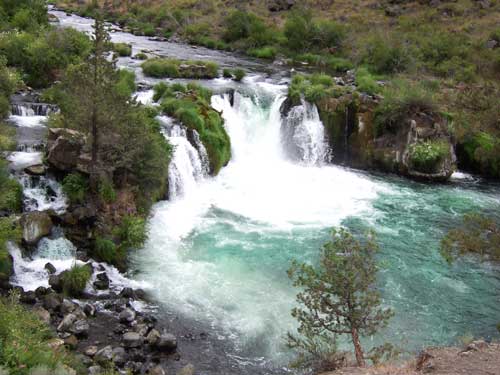 Winner of Galen Rowell Award for Outstanding Backcountry Project
Winner of Galen Rowell Award for Outstanding Backcountry Project
Friends and Neighbors of the Deschutes Canyon Area will use funding from a National Trails Fund grant to repair the trail and parking area at the Bureau of Land Management’s Steelhead Falls Wilderness Study Area, located on the Deschutes River in Central Oregon. In 2013, a severe summer storm damaged the trail, breaking railings and posts along the path. Native plantings are now required to halt erosion of the trail and the adjacent hillside. Posts in the parking area, which protect sensitive habitat from vehicular damage, have been removed or destroyed, and now need replacing.
The primary goal of this project is to restore the trail leading to Steelhead Falls, to replace railings and posts along the trail, and to replace missing and damaged posts in the parking area and sign posts at the trailhead. The BLM estimates that 15,000 discrete visitors come to the Steelhead Falls Wilderness Study Area each year, so the secondary goal is to ensure a safe and environmentally aesthetic wilderness experience for the public.
Friends of Sleeping Bear Dunes
Empire, Michigan
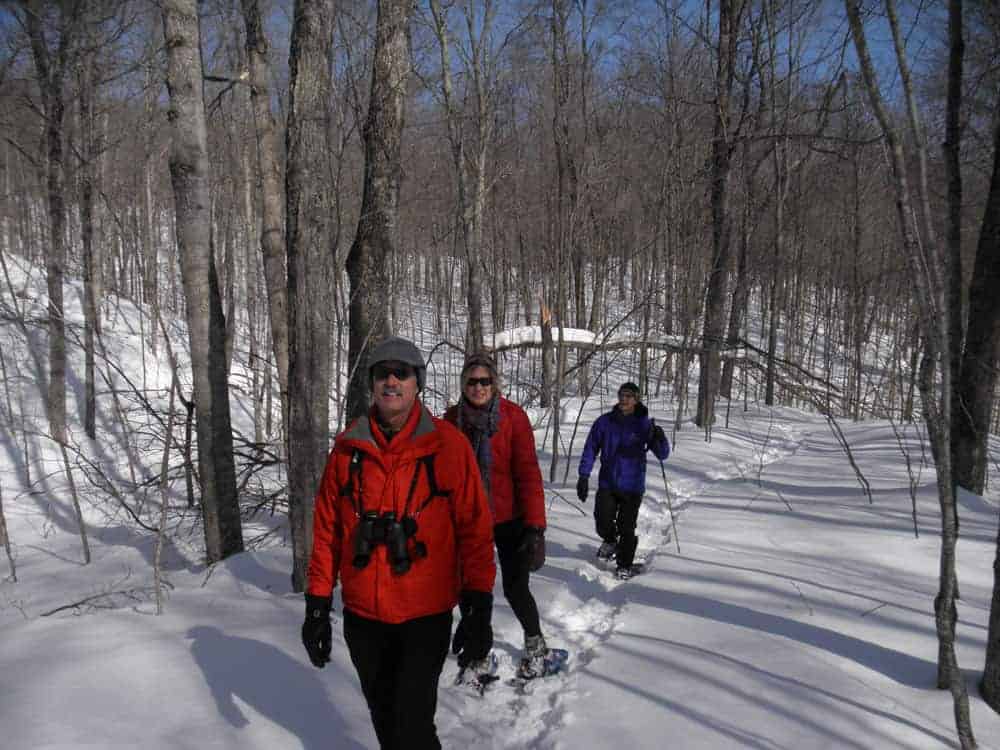 Friends of Sleeping Bear Dunes will use their grant from the National Trails Fund to construct a new 4-mile trail in the Bow Lakes Area of Sleeping Bear Dunes National Lakeshore – an area containing unique geology and habitats not found in other parts of the National Lakeshore. Currently very few people visit the Bow Lakes Area of the National Lakeshore, because well-marked trails, signs, and facilities do not exist here. Friends of Sleeping Bear Dunes’ will build a hiking trail, install interpretive signs, and distribute maps and online materials to increase accessibility for school groups and individuals with an interest in learning about local geology and bog habitats. The isolated location and the hilly geography provide excellent opportunities for hiking, birding, snowshoeing, and skiing as well as a place for quiet mediation. The Environmental Assessment is being completed now thanks do donations from individuals, local businesses, and the Friends in 2013.
Friends of Sleeping Bear Dunes will use their grant from the National Trails Fund to construct a new 4-mile trail in the Bow Lakes Area of Sleeping Bear Dunes National Lakeshore – an area containing unique geology and habitats not found in other parts of the National Lakeshore. Currently very few people visit the Bow Lakes Area of the National Lakeshore, because well-marked trails, signs, and facilities do not exist here. Friends of Sleeping Bear Dunes’ will build a hiking trail, install interpretive signs, and distribute maps and online materials to increase accessibility for school groups and individuals with an interest in learning about local geology and bog habitats. The isolated location and the hilly geography provide excellent opportunities for hiking, birding, snowshoeing, and skiing as well as a place for quiet mediation. The Environmental Assessment is being completed now thanks do donations from individuals, local businesses, and the Friends in 2013.
Friends of Woodland Park
Houston, Texas
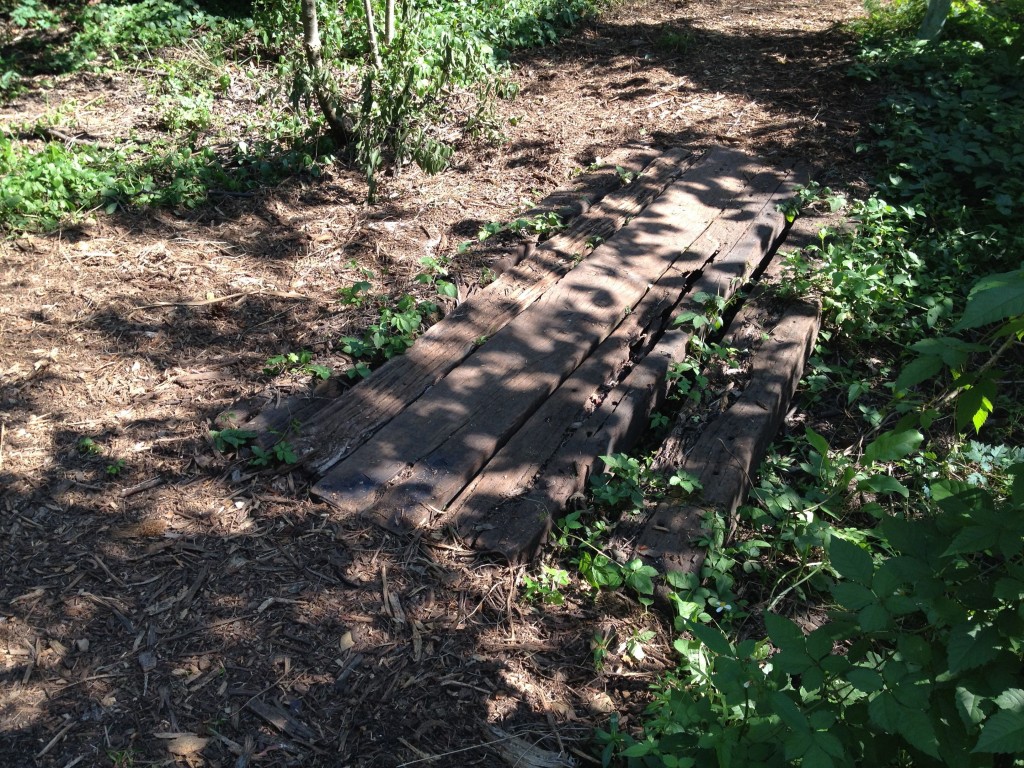 The National Trails Fund grant acquired by the Friends of Woodland Park (FWP) will be used to improve the Woodland Park trail system in Houston, Texas. FWP will install steps, bridges and signage to enhance trail access and usage. At the four trail entry points, FWP will install timber steps (water stops) to accommodate and encourage more pedestrian users. Additionally, FWP plans to install three small bridges to help users cross several small gullies. Lastly, signage will be added with map locations to keep hikers safe on the trail.
The National Trails Fund grant acquired by the Friends of Woodland Park (FWP) will be used to improve the Woodland Park trail system in Houston, Texas. FWP will install steps, bridges and signage to enhance trail access and usage. At the four trail entry points, FWP will install timber steps (water stops) to accommodate and encourage more pedestrian users. Additionally, FWP plans to install three small bridges to help users cross several small gullies. Lastly, signage will be added with map locations to keep hikers safe on the trail.
Tar River Land Conservancy
Louisburg, North Carolina
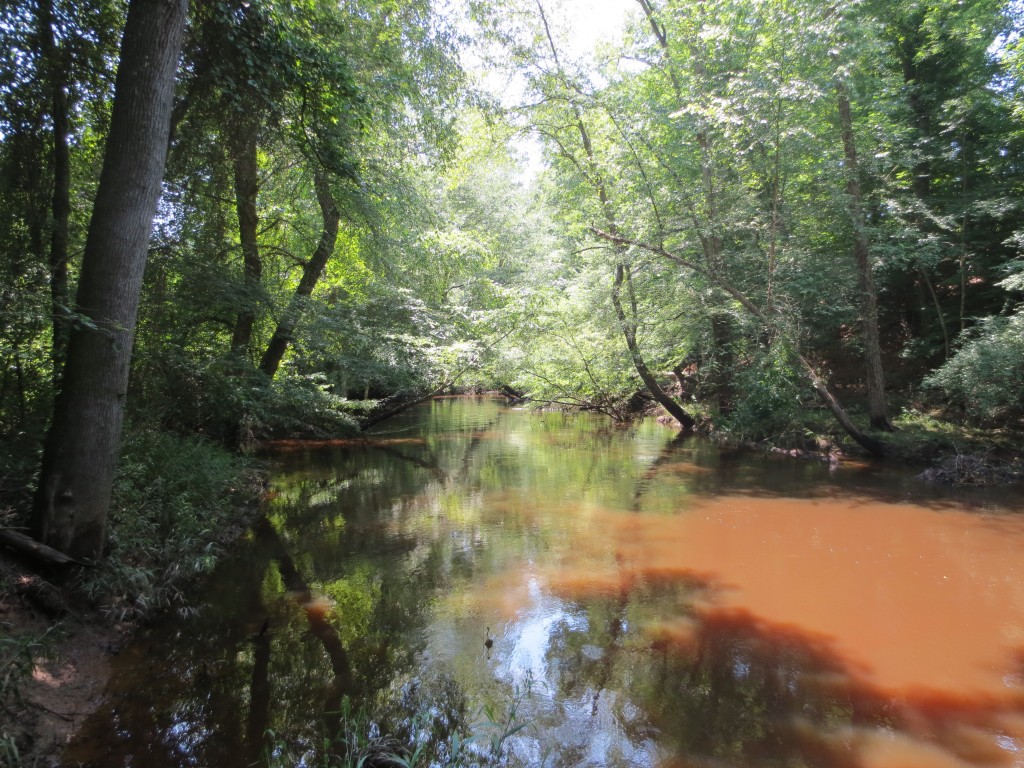 Tar River Land Conservancy (TRLC) will utilize a National Trails Fund grant to construct a one-mile, unpaved walking trail on TRLC’s Bunn Farms Tracts (Tracts). The Tracts contain a total of 34.8 acres and include creek frontage, forested wetlands and mature bottomland hardwood stands. Presently, the property is not open to the public due to the overgrowth of vegetation and general safety concerns. The Tracts adjoin public roadways and a neighborhood park. By constructing a walking trail, TRLC will enable the community to enjoy the natural beauty of the property, while also providing a means of outdoor recreation.
Tar River Land Conservancy (TRLC) will utilize a National Trails Fund grant to construct a one-mile, unpaved walking trail on TRLC’s Bunn Farms Tracts (Tracts). The Tracts contain a total of 34.8 acres and include creek frontage, forested wetlands and mature bottomland hardwood stands. Presently, the property is not open to the public due to the overgrowth of vegetation and general safety concerns. The Tracts adjoin public roadways and a neighborhood park. By constructing a walking trail, TRLC will enable the community to enjoy the natural beauty of the property, while also providing a means of outdoor recreation.
TRLC hopes to accomplish the following by completing this project: (1) To enable public access to Stoney Creek, which is designated as a “state significant” aquatic habitat by the North Carolina Natural Heritage Program, along with interpretative materials to provide educational information about the important species, habitat and ecosystems in the Tar River Basin; (2) To provide a recreational resource to the local community; and (3) To engage local community groups and businesses in the creation of trails and outdoor recreation opportunities that could be leveraged in the future to provide access on other properties.
Washington Road Community Trail
Westminster, Maryland
 Washington Road Community Trail will use a National Trails Fund grant to improve the hiking experience along the Washington Road Community Trail. Feedback from hikers indicates that the existing bridges are worrisome because of the width and lack of handrails, while joggers have reported difficulty navigating a rocky culvert. Project goals include increasing visibility of trail information and maps while improving access by replacing two bridges and adding a third bridge to ease access.
Washington Road Community Trail will use a National Trails Fund grant to improve the hiking experience along the Washington Road Community Trail. Feedback from hikers indicates that the existing bridges are worrisome because of the width and lack of handrails, while joggers have reported difficulty navigating a rocky culvert. Project goals include increasing visibility of trail information and maps while improving access by replacing two bridges and adding a third bridge to ease access.
Westmoreland Davis Memorial Foundation
Leesburg, Virginia
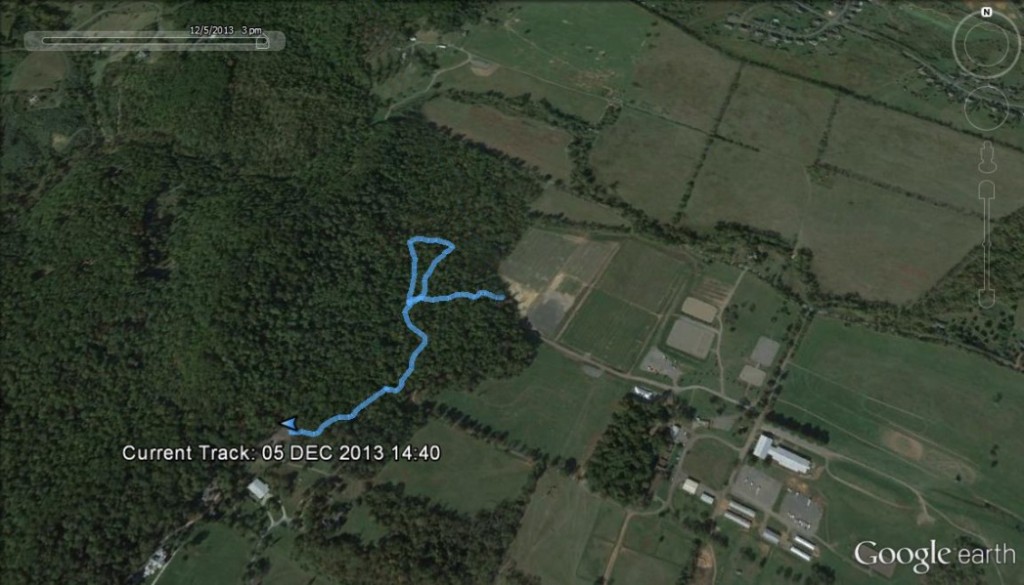 Westmoreland Davis Memorial Foundation (WDMF) will use its National Trails Fund grant to open two sections of hiking trail in Morven Park, a 1,000-acre property in Leesburg, Virginia. WDMF will join the local school district, the Rotary Club, a Volunteer Widlife Conservancy Organization, and the Junior ROTC to complete the initiative. As a result, this special landscape of 350 mountainous and wooded acres on the Catoctin Ridge will become accessible to the public for the first time in over 20 years, beginning with these two sections.
Westmoreland Davis Memorial Foundation (WDMF) will use its National Trails Fund grant to open two sections of hiking trail in Morven Park, a 1,000-acre property in Leesburg, Virginia. WDMF will join the local school district, the Rotary Club, a Volunteer Widlife Conservancy Organization, and the Junior ROTC to complete the initiative. As a result, this special landscape of 350 mountainous and wooded acres on the Catoctin Ridge will become accessible to the public for the first time in over 20 years, beginning with these two sections.
This initiative includes two projects: a 1-mile trail built as part of an 8th-grade service learning project, and a 1-mile trail constructed by the Rotary Club and volunteers from Junior ROTC. The 8th-grade trail (currently unnamed) is part of Morven Park’s Student Citizenship Project, now in its pilot year. Eighth graders will learn skills to become active citizens through this supplement to their in-class civics curriculum, utilizing service learning to create long-lasting impact. Half the students will be asked to solve a community issue relating to lack of outdoor recreational opportunities, culminating in construction of the public hiking trail within Morven Park’s 350-acre wooded ridgeline. Simultaneously, the Rotary will lead construction of a hiking trail that will link to the 8th-grade trail. The “Wood Thrush Trail” begins near Morven Park’s existing sports fields, providing families a unique opportunity to enjoy nature in between competitions.
